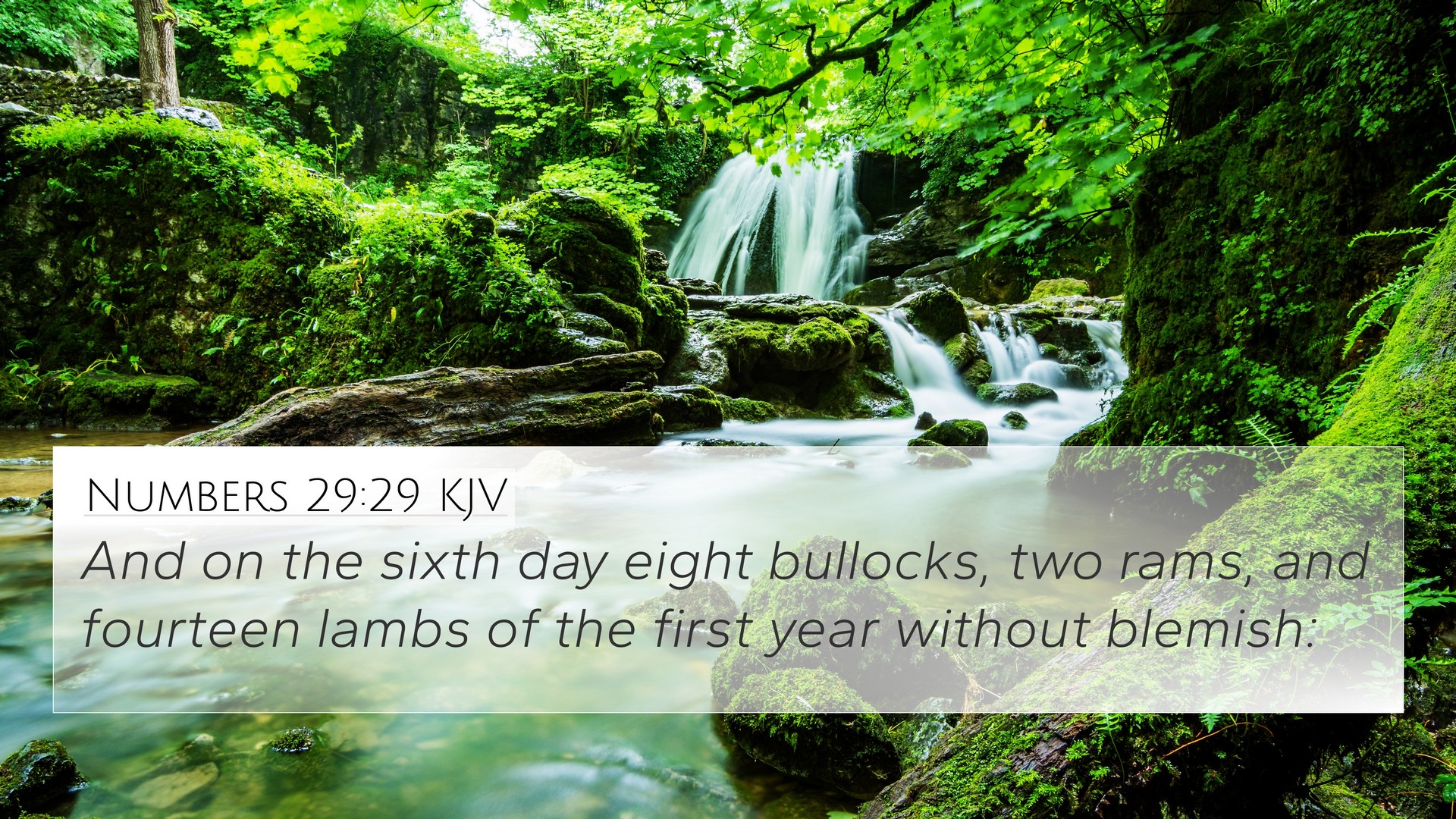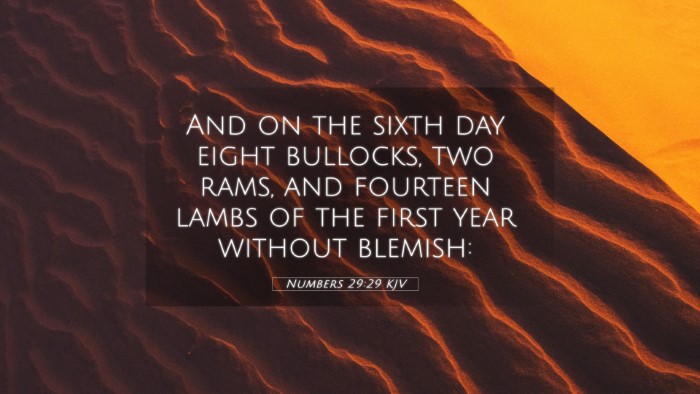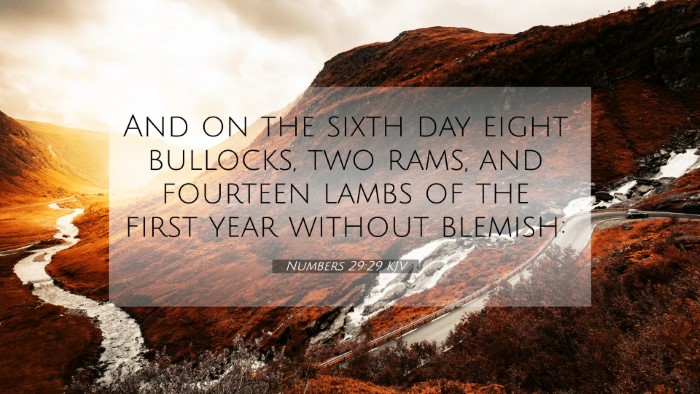Understanding Numbers 29:29
Verse: Numbers 29:29 states, “And on the fifth day, nine bullocks, two rams, fourteen lambs of the first year without spot.” This verse is part of the instructions regarding the offerings during the Feast of Tabernacles, emphasizing the importance of sacrifices and worship in the Israelite tradition.
Significance of the Verse
The verse encapsulates key themes in biblical worship and the significance of sacrificial offerings. It highlights God's requirements for the Israelites, emphasizing obedience, gratitude, and communal worship through prescribed rituals.
Commentary Insights
The following insights are drawn from public domain commentaries such as Matthew Henry, Albert Barnes, and Adam Clarke:
- Matthew Henry: He emphasizes that the sacrifices represent the joy and celebration of God’s provision. Henry notes that specific details about sacrifices indicate that worship must be done not only sincerely but also according to God’s specifications.
- Albert Barnes: Barnes views the offerings as critical acts of worship that signify the people's commitment to God. He mentions that the number and type of animals reflect the seriousness of the Israelites' covenant with God, pointing to the necessity of purification and atonement.
- Adam Clarke: Clarke adds historical context, explaining that these rituals were a part of the broader system of the ancient Israelite worship. He highlights that the prescribed offerings were crucial not just for individual worship but for the community's collective relationship with God.
Thematic Connections
In understanding Numbers 29:29, we can explore numerous thematic connections through cross-referencing Biblical texts. Here are key related verses:
- Leviticus 23:34-43: This passage outlines the Feast of Tabernacles, providing a deeper understanding of the context for the sacrifices mentioned in Numbers 29.
- Exodus 23:16: It connects the agrarian roots of the feast with the giving of the harvest and the joy it signifies.
- Deuteronomy 16:14: This verse reinforces the spirit of rejoicing during sacred festivals, echoing the importance of communal festivities in worship.
- 1 Peter 2:5: As a New Testament reference, this verse speaks to the idea of believers as living sacrifices, drawing parallels to the concept of worship and sacrifice.
- Hebrews 13:15-16: This passage encourages continual offerings of praise, connecting New Testament worship with the sacrificial system established in the Old Testament.
- Matthew 5:23-24: Reflecting on the importance of reconciliation in worship, showcasing the continuity of themes throughout Scripture.
- Romans 12:1: This verse highlights the call for believers to present themselves as living sacrifices, linking Old Testament sacrificial practices with the Christian faith.
Cross-Referencing Biblical Texts
The art of cross-referencing biblical texts enriches our understanding of specific verses by revealing interconnections within the scriptures. Scholars and believers alike can benefit from tools for Bible cross-referencing, enabling a deeper comprehension of the themes that run throughout the Bible.
Tools for Bible Cross-Referencing
Some useful resources and methods in exploring cross-references are:
- Bible Concordance: A Bible concordance serves as an invaluable tool for locating verses and identifying connections between passages.
- Bible Cross-Reference Guide: Using a structured cross-reference guide aids in systematically studying linked verses.
- Cross-Reference Bible Study: Engaging in a focused cross-reference study illuminates the relationships between themes across different books of the Bible.
- Bible Chain References: Following chain references can provide a comprehensive view of biblical themes.
Exploring Further
For deeper study, consider how specific pairs of verses are related and how understanding these connections impacts biblical interpretation. Reflection on how Old Testament and New Testament scriptures dialogue can also provide ample insights. With these methods, one can partake in a richer and more nuanced study of the Bible, enhancing one's spiritual growth and comprehension of divine truths.
Conclusion
Numbers 29:29 serves as an important reminder of the rich tapestry of worship woven throughout the Bible. The sacrifices fulfilled in this verse prompt us to consider how we engage in worship and how we can recognize modern parallels to ancient practices. By engaging with themes of sacrifice, communal celebration, and obedience, we can draw nearer to the heart of biblical truths.
Further Study
To continue exploring Bible verses related to Numbers 29:29, one may reflect on what verses relate similarly to the themes of sacrifice and worship. Identifying connections between Old and New Testament should be a focal point for believers seeking comprehensive scriptural understanding.


